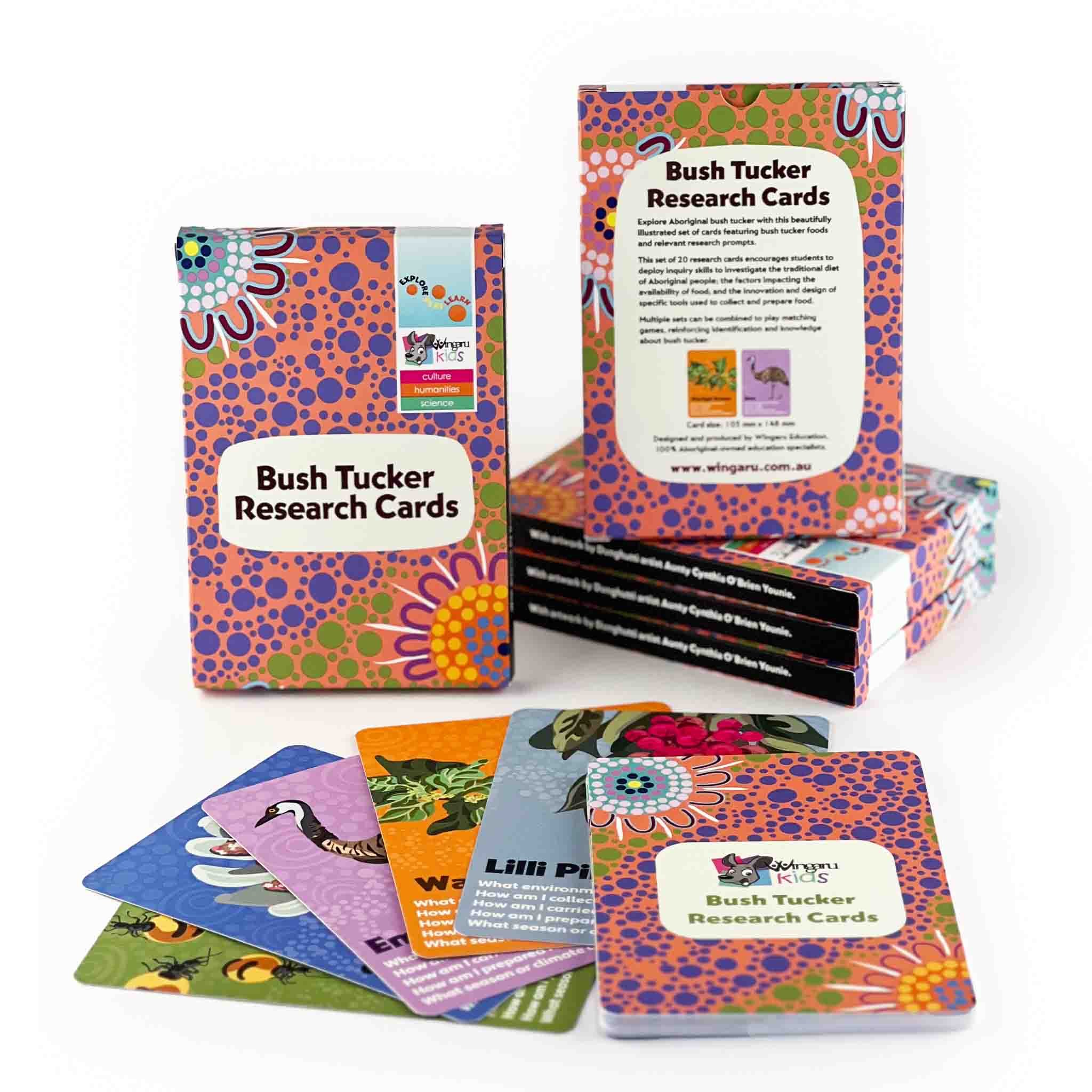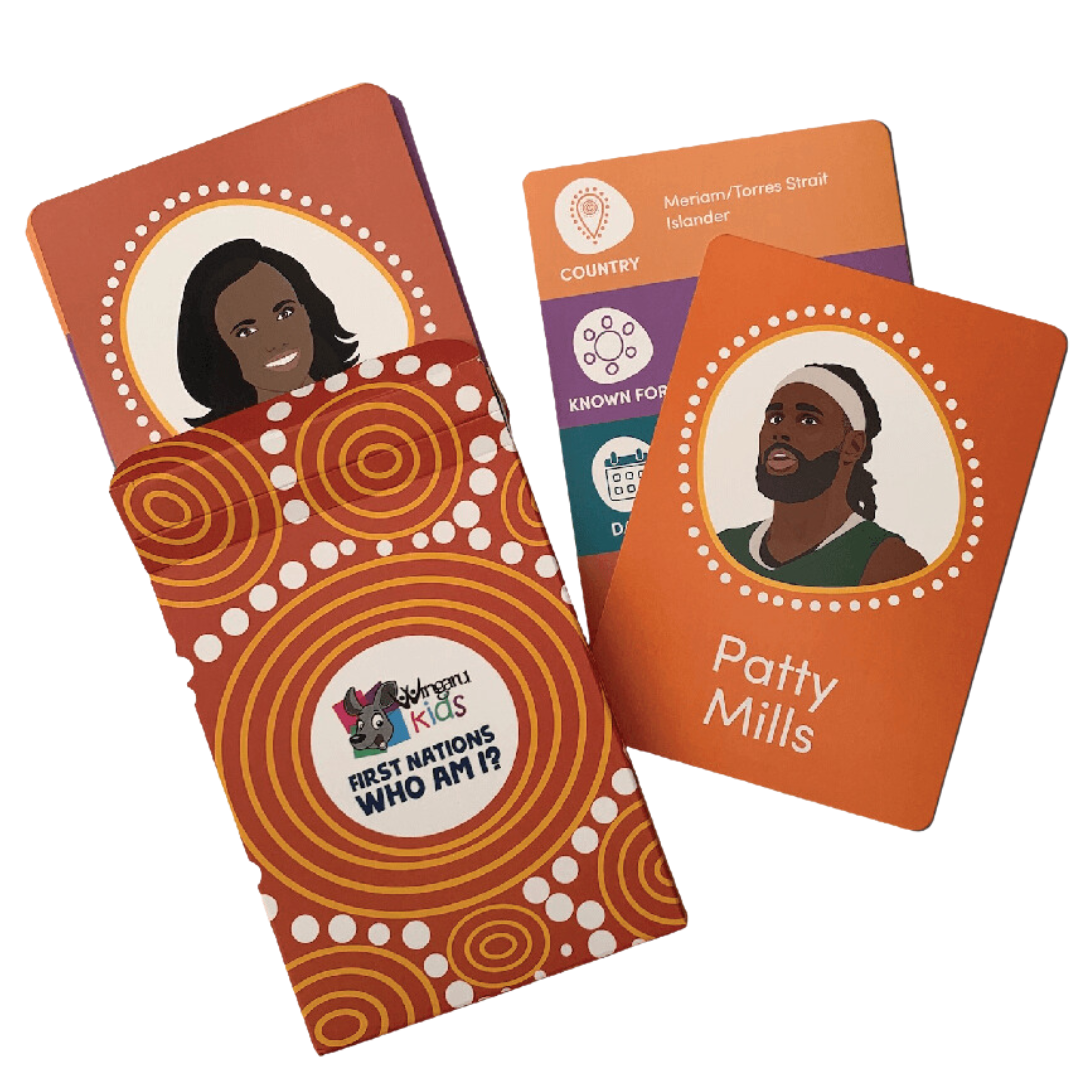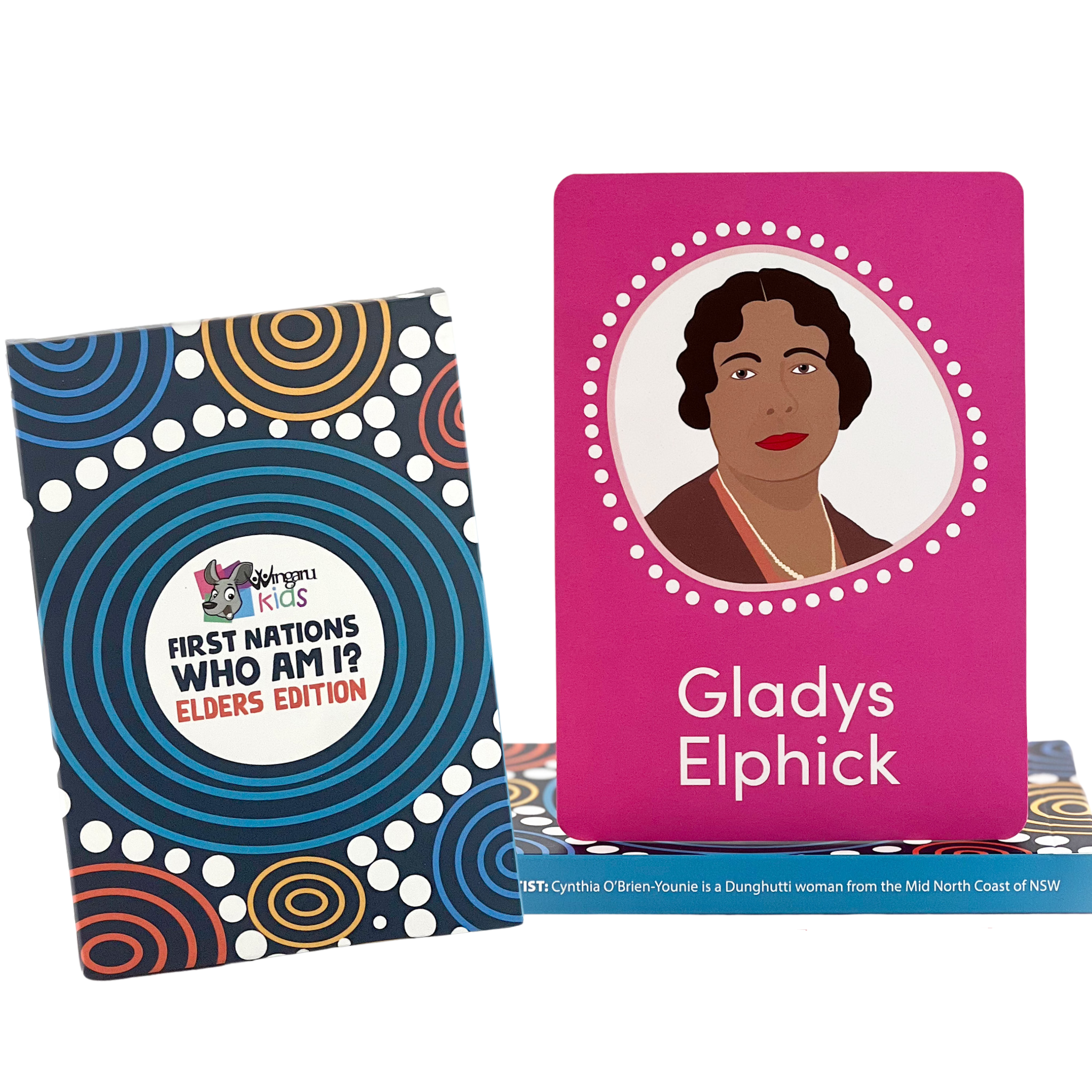Using Research Cards in the Classroom
As dedicated educators, we strive to instill curiosity and critical thinking in our students, constantly hunting for tools and strategies that encourage students to utilise enquiry skills, develop sound research practices, and exercise their developing critical-thinking skills. Critical thinking is one of the many important things children learn at school; when it comes to Aboriginal perspectives, it is one of the most important skills we can nurture.
The world around us is full of myths, misconceptions and untruths about Aboriginal and Torres Strait Islander people, culture and history. We need everybody to play a part in truth-seeking and truth-sharing, and part of this is giving kids the skills to question the information they are hearing – in the media; from the chatty man on the bus; or a misinformed relative. Developing the ability to think critically is a vital part of being a truth-seeker and teller.
Wingaru Research Cards are specifically designed to help you in the classroom as you support students in developing these important skills. Specifically created to delve into First Nations history, science and technology, these card collections provide an engaging way for students to explore Aboriginal and Torres Strait Islander culture, stories and histories.
Whether you are exploring the stories of some of the notable people working towards change in our communities or exploring First Nations science and innovation, our research cards have been designed with flexibility at their core. They are tools that support you to have rich discussions with your students – which is what we call ‘having a yarn’. Yarning is more than conversation; it's an engaging dialogue that allows us to explore concepts, challenge ideas and resolve any uncertainties we may have. I talk more about yarning and setting up a yarn circle here.
They are quick starts, prompts to get students started and exploring the subject matter. They are focus questions to keep conversations and research projects moving, and guides to encourage students to consider their topic from multiple angles. They are conduits to support the exchange of information and ideas, and they are games and activities that reinforce learning.
Whichever way you decide to use our research cards, here are a few tips for getting the most out of them:
It is OK not to have the answers:
It's not uncommon for teachers to feel a degree of discomfort when approaching sensitive topics, particularly those related to First Nations issues. Understanding that the goal is not to have all the answers is crucial. This is precisely why the Wingaru Research Cards have been designed without predetermined answers – to foster an environment where students can explore, discover and learn together. The absence of answers encourages critical thinking and research skills, enabling you and your students to actively engage with the material.
Embrace the enquiry process:
Encourage students to delve into the unknown. The intentional lack of answers on the cards fosters research skills and critical thinking. Embrace the uncertainty and guide students through their process of investigation.
Reinforce the importance of reliable sources:
Equip students with the skills to find credible sources. Discuss the significance of cross-referencing information and finding accurate facts. Encourage the use of reputable sources like government websites, educational institutions, cultural institutions, community groups, books, journals, media outlets and local Elders and communities.
Some useful resources to get you started!
Museums
(Australian Museum, National Museum of Australia, Museums Victoria, Museum of Brisbane, South Australian Museum, Museum and Art Gallery Northern Territory, Western Australian Museum)
National Archives of Australia
Ngurrara - Australian Aboriginal Interactive Storybook
Navigating sensitive topics:
Establish an open and respectful classroom environment to address concerns about teaching sensitive subjects. Set guidelines for discussing First Nations topics, emphasising cultural sensitivity and fostering a space where every voice is heard and valued.
10 ideas for implementing research cards in the classroom
1. Random Card Research: Assign cards randomly to students for individual or small-group research.
2. Who Am I? Game: Play the classic "Who Am I?" game, encouraging students to describe the person, bush tucker or tool on their card.
3. Memory Matching Game: With two sets of cards, engage students in a memory-matching game, reinforcing identification and knowledge interactively. Play with Who Am I? sets and match people to their biographical information.
4. Create Posters: Have students create informative posters based on research, showcasing key facts and visuals.
5. Have a Yarn/Circle Time: Foster a sense of community and open discussion by having a yarn, or instigating circle time. Encourage students to discuss the topics in a supportive and collaborative environment.
6. Role-Play Interviews: Role-play interview scenarios by using the notable First Nations people from the "Who Am I?" cards.
7. Create a Timeline: Visualise history by having students create a timeline showcasing the historical development of tools or the achievements of notable figures, for example.
8. Involve the whole class in a matching game – have each student research their person (or facts to identify who their person is) and then ask them to find their partner in the class. Get each partnership to document their research to share with the class.
9. Reflective Journaling: Have students participate in reflective journaling documenting their insights and connections to the research.
10. Bingo: Develop a bingo game where students mark off items on their cards as they learn about different tools, bush tucker items or First Nations people.





